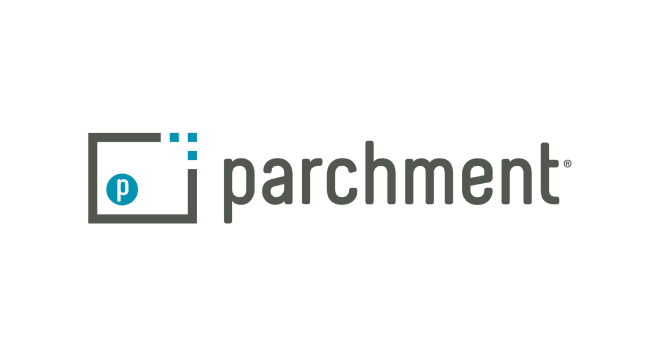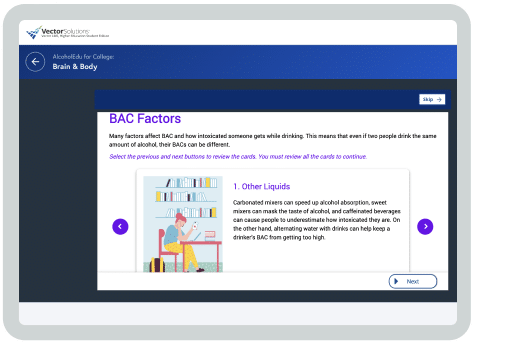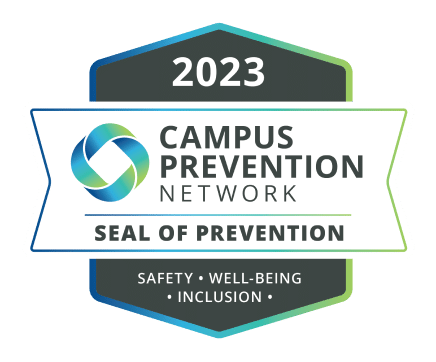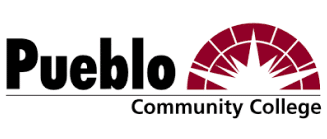Earn Recognition for Your Prevention Efforts
Showcase the prevention work being done on your campus to improve student well-being and success. Vector Solutions’ CPN Seal of Prevention is given to institutions that demonstrate exemplary use of comprehensive, evidence-based digital prevention strategies.

Elevate the Visibility of Your Prevention Investments
Colleges, universities, and organizations that prioritize comprehensive and high-impact digital prevention strategies in critical areas such as mental health, diversity, substance misuse, sexual violence, and hazing deserve recognition. The Seal of Prevention elevates these investments so they are visible to your current and future campus community.
-
82%
of high school seniors reported that safety, well-being, and inclusion are as important as academic rigor when choosing a college
-
34%
of high school students are more likely to attend a campus that has achieved the CPN Seal of Prevention
-
77%
of current college students feel it is important that their institution has achieved the CPN Seal of Prevention of high school students feel it's difficult to find information about campus safety, well-being, and inclusion programs and services
-
10%
higher first-year retention rate, on average, for institutions with the CPN Seal of Prevention compared to non-Seal institutions
CPN Seal of Prevention
Vector Solutions synthesized two decades of prevention research and practice to establish a meaningful quality standard for online prevention programs. Each year, we evaluate colleges, universities, and national organizations against evidence-based prevention principles to determine the quality of their digital programming.
Vector Solutions Higher Education customers are evaluated automatically, and institutions not currently using Vector Solutions’ courses may also apply for consideration.
How Do We Evaluate Institutions for the CPN Seal?
The criteria for the CPN Seal of Prevention are based on the Principles of Effective Prevention Programs published by Nation, et al. (2003).
Research Driven
- Prevention Principle: Programs have a theoretical justification, are based on accurate information, and are supported by empirical research.
- Seal Criteria Description: Programs are based on evidence and theory and/or have been demonstrated to be efficacious based on peer-reviewed research.
Socio-Culturally Relevant
- Prevention Principle: Programs are tailored to the community and cultural norms of the participants and make efforts to include the target group in program planning and implementation.
- Seal Criteria Description: Programs provide options to include campus-specific images, content, and resources; programs are regularly updated to reflect evolving social contexts and learner needs and perspectives.
Appropriately Timed
- Prevention Principle: Programs are initiated early enough to have an impact on the development of the problem behavior and are sensitive to the developmental needs of participants.
- Seal Criteria Description: Programs are strategically and intentionally deployed to address specific population needs at known high-impact times.
Sufficient Reach and Dosage
- Prevention Principle: Programs are implemented at the population level, provide enough intervention to produce the desired effects, and provide follow-up as necessary to maintain effects.
- Seal Criteria Description: Programs are deployed at the population level. Developmentally appropriate ongoing programs are available throughout the student lifecycle.
Outcomes Evaluated & Data Utilized
- Prevention Principle: Programs have clear goals and objectives and make an effort to systematically document their results relative to the goals; prevention efforts are informed by local data.
- Seal Criteria Description: Programs include integrated surveys to assess efficacy and gather institution-specific insights on community strengths and focus areas.
Varied Teaching Relationships
- Prevention Principle: Programs involve diverse teaching methods that focus on increasing awareness and understanding of the problem behaviors and on acquiring or enhancing skills.
- Seal Criteria Description: Programs include a variety of learning approaches that increase and improve knowledge and awareness, attitudes and beliefs, and behaviors and skills.
Well-Trained Staff
- Prevention Principle: Program staff support the program and are provided with training regarding the implementation of the intervention.
- Seal Criteria Description: Program administrators participate in implementation training and ongoing professional development.
Positive Relationships
- Prevention Principle: Programs provide exposure to adults and peers in a way that promotes strong relationships and supports positive outcomes.
- Seal Criteria Description: Programs provide examples of prosocial behaviors, avoid negative assumptions, and include positive engagement opportunities.
Comprehensive
- Prevention Principle: Multicomponent interventions address critical domains (e.g. family, peers, community) that influence the development and perpetuation of the behaviors to be prevented.
- Seal Criteria Description: Programs cover a range of key prevention topics. Program content, design, and approach are consistent across topics, address and reinforce interconnections, and cover all social-ecological levels (individual, relationship, community, and societal).

Proud Partners with Parchment
Vector Solutions is proud to partner with Parchment, the world’s leading digital credential service, to elevate and differentiate campuses committed to excellence in campus prevention efforts. The CPN Seal of Prevention will be visible to prospective students and their parents through Parchment’s College Profile Pages and Student Choice Survey.
These tools – used by millions of students to learn about campuses that align with their interests, needs, and values – tie great prevention work directly to recruitment, enrollment, and long-term institutional success. Prospective students are encouraged to add institutions with the CPN Seal of Prevention to their college list when using Parchment in their college search process.
Connect with the Largest Higher EducationFocused Prevention Network
2,000+
colleges, universities, and national organizations

120+
dedicated education team members, including in-house experts on prevention, compliance, and social science researchers
9
peer-reviewed journals, our courses are proven to positively impact behavior
10M+
student, staff, and faculty reached each year
-
2,000+
colleges, universities, and national organizations
-
120+
dedicated education team members, including in-house experts on prevention, compliance, and social science researchers
-
9
peer-reviewed journals, our courses are proven to positively impact behavior
-
10M+
student, staff, and faculty reached each year

See What’s New at CPN Connect
Transform higher education and cultivate success and well-being for your campus community. Join Vector experts and peers as we discuss best practices, strategies, and thought leadership to advance safety and well-being on campus.

Frequently Asked Questions
What is the Campus Prevention Network Seal of Prevention?
The CPN Seal of Prevention is a designation given to institutions committed to comprehensive, evidence-based digital prevention strategies on issues of wellness, safety, and inclusion. The CPN Seal elevates the visibility of campuses that demonstrate evidence of meeting this commitment. The profile of Seal-awarded institutions is exceptionally diverse, spanning almost all 50 states, the majority of the top 50 in the US News & World Report Best Colleges ranking, dozens of community and technical colleges, and nearly 30 national fraternity and sorority organizations.
Why did we create the CPN Seal of Prevention?
We know institutions that emphasize wellness, safety, and inclusion see improved student outcomes across the lifecycle – from enrollment and engagement to academic achievement and retention. The CPN Seal of Prevention recognizes the outstanding digital prevention education efforts of these institutions and elevates these commitments to students and parents as essential to consider during the college search process. In fact, institutions that have achieved the Seal have, on average, a ten percent higher first-year retention rate than those that have not earned this designation.
What criteria are used to determine who is awarded?
Vector Solutions’ subject matter experts, a group of professionals with decades of collective prevention experience, spent months researching and reviewing prevention best practices to identify the key components of the Seal of Prevention.
The criteria for the CPN Seal are based on the Principles of Effective Prevention Programs published by Nation, et al. (2003). Refer above for details.
How does a campus apply?
It’s easy for Vector Solutions Higher Education customers to be considered each year for the CPN Seal. We automate the evaluation process through our technology platform.
A campus or organization that is not currently a Vector Solutions customer can submit an application to determine whether their prevention technology meets the criteria of this recognition.
What will an institution or organization receive if they qualify?
Seal-awarded institutions and organizations will receive a package of promotional materials to help share the news, including items like a digital image of the Seal; a press release template; and social media sharing templates. In addition, all eligible institutions will be recognized on Parchment through our partnership, including on Parchment’s College Profile Pages and the annual Student Choice Survey.
How will honored institutions and organizations be promoted?
Institutions earning the CPN Seal of Prevention will be recognized on the Vector Solutions website, included in an annual press release, and acknowledged at the Annual CPN Summit. Qualifying campuses will be promoted via Parchment’s College Profile Pages and the annual Student Choice Survey.
What if Seal-awarded institutions don't wish to be included?
Campuses will have the option to decline the CPN Seal of Prevention prior to final determination and will not be included in any promotional materials.

Implement High-Impact Digital Programming Today
Learn why Vector is the first choice for 2,000+ higher education institutions and organizations nationwide. We help you create safer and more inclusive communities with powerful, evidence-based training, technology solutions, and data insights.
Get Recognition for Your Prevention Program
Learn more about the opportunity to receive the CPN Seal of Prevention at your college, university, or organization.












